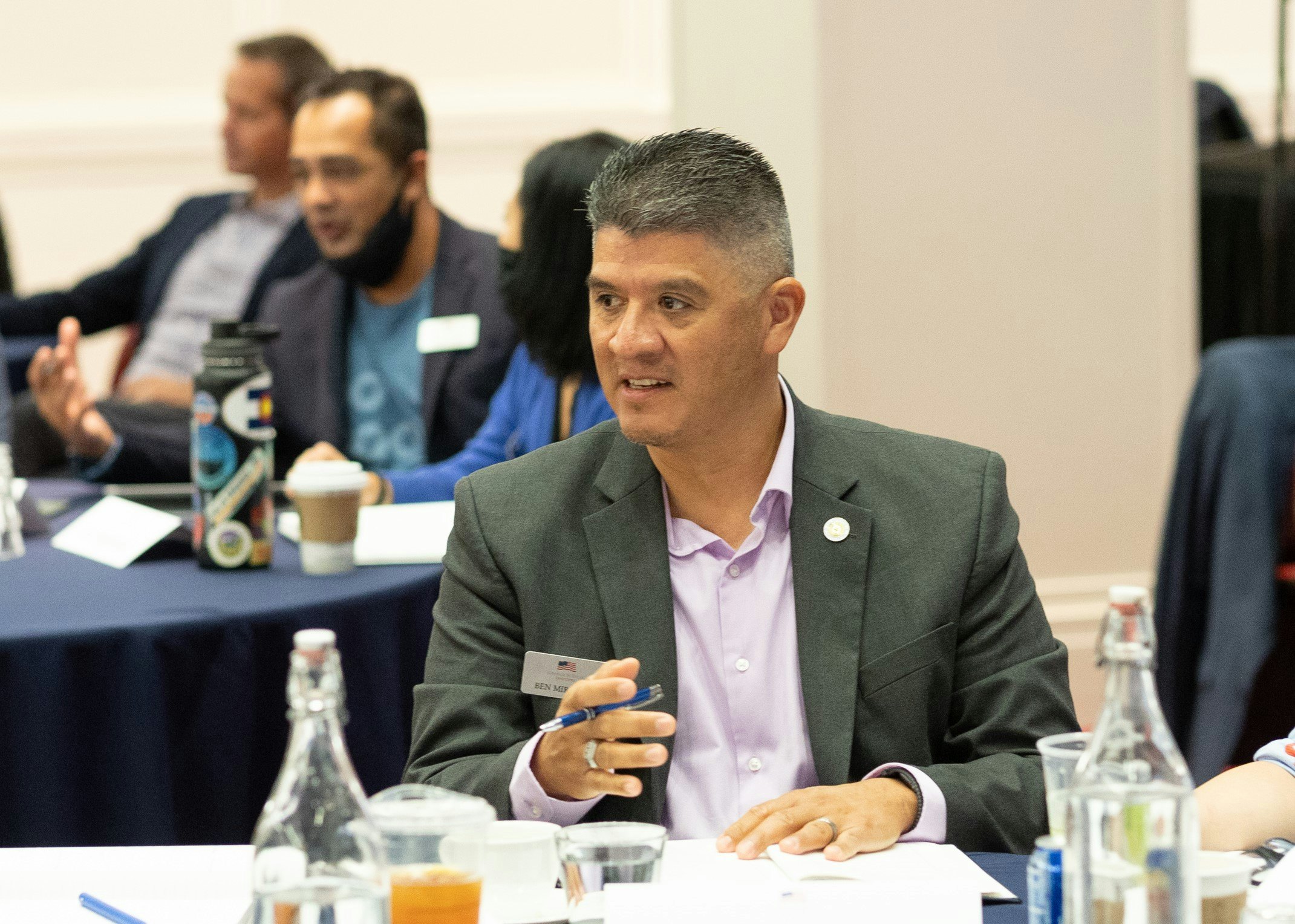Because we know that the health and wellbeing of post-9/11 veterans is often complex, the Bush Institute has asked veterans to explain in their own words what it’s like to experience the invisible wounds of war.
This year, the Bush Institute is launching a new initiative to raise awareness about the invisible wounds of war: Traumatic Brain Injury (TBI) and Post Traumatic Stress (PTS). A major focus of our work will examine how best to ensure veterans seek and receive effective treatment. We also will concentrate on strategies to eliminate barriers to care, including removing stigmas associated with these wounds. Because we know that the health and wellbeing of post-9/11 veterans is often complex, the Bush Institute has asked veterans to explain in their own words what it’s like to experience one or more of these injuries.
We start today with Melissa Stockwell, a member of Team 43 Sports, who has participated in the Warrior 100K. She spoke recently with the Bush Institute about how she came to understand the impact of the invisible wounds of war.
Can you tell us a little bit about your service? What made you want to join the military? What was your branch and rank, and where were you stationed?
I joined the military because I love our country. I wanted to give back to a country that has given me so much. In 2002, I was commissioned as a proud Second Lieutenant from the University of Colorado in Boulder and was assigned to the First Calvary Division in Fort Hood, Texas. I was deployed to Iraq in early 2004 and lost my leg soon after on April 13, 2004.
Did you know much about invisible wounds before you entered the military? If so, what did you know about them? What kind of stigmas are associated with invisible wounds within the military culture?
I did not know much about invisible wounds of war until I was injured and spent many months at the Walter Reed Army Medical Center. I think veterans with invisible wounds feel embarrassed or self- conscious about it. I think there is a tremendous amount of awareness needed as well as resources for anyone suffering from PTS or TBI so that veterans can admit they are suffering. Invisible wounds of war are a very real thing and in some ways, more devastating than the visible wounds of war.
In learning about invisible wounds, PTS and TBI, we know they affect everyone differently. We have also learned that the road to recovery looks a bit different for everyone affected by these wounds. Can you share with us what your recovery has been like? What helped you?
What was most helpful to me was surrounding myself with others that have gone through similar circumstances and people that love me and wanted to help me get better. I took opportunities that were presented to me early on in my recovery to prove to myself I could still do what I wanted to with just one leg. That allowed me to build my self-worth and helped me learn to believe in myself, a key element to recovery.
What role have sports and physical activities played in your recovery, both physically and mentally?
I proudly live a life of sport. Sports helped me recover both mentally and physically. Getting in the pool in the first few months after I lost my leg made me feel whole again. Skiing down a mountain on one leg taught me that I could still do anything I wanted. Crossing the finish line of the NYC marathon just months after my injury renewed my competitive spirit. Sports motivated me to see how far I could get and gave me confidence I couldn’t have gotten anywhere else. Over the years, I have competed at the elite level and some of my proudest moments are wearing a USA uniform on the world’s biggest athletic stage. Even just getting out a few times a week and being active with friends and family can heal from the inside out.
What would you say to other veterans who are struggling with their transition, especially those who have not made the decision to seek help?
To let others help. To not be embarrassed if you need help and to reach out to the many people that want to be by your side to help ease the transition. It’s not easy but you can and will get through it and find whatever it is your new normal is.






























